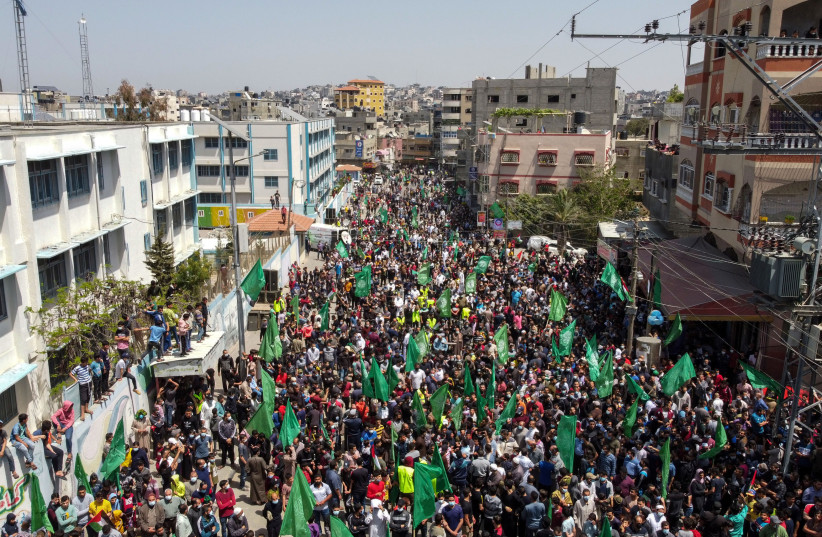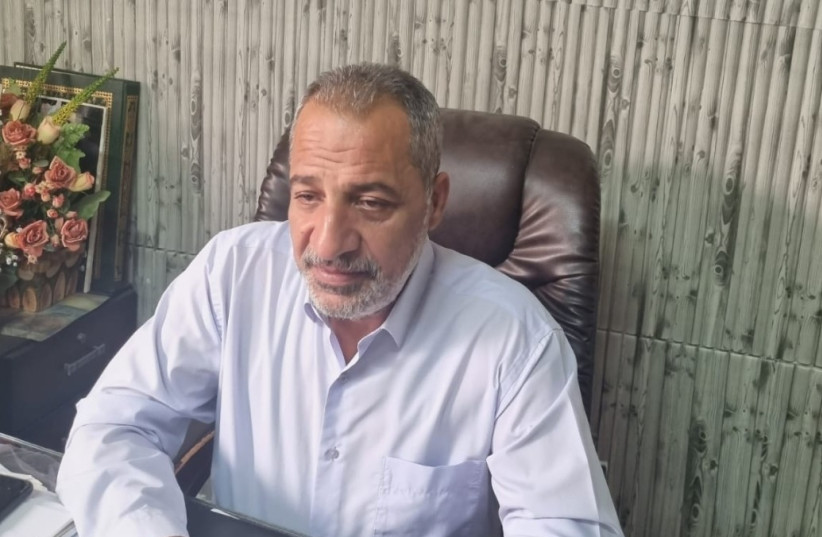many Fatah activists are turning to Hamas and the Palestinian Islamic Jihad because they have lost confidence in their leaders, senior Fatah official Jamal Tirawi says.

Hamas and the Palestinian Islamic Jihad (PIJ) are taking advantage of the weakness of the ruling Fatah faction and the infighting within its ranks to strengthen their presence in the West Bank, Jamal Tirawi, a senior Fatah official, warned over the weekend.
Tirawi revealed that many Fatah activists were turning to Hamas and PIJ because they have lost confidence in their leaders.
He pointed out, however, that these members don’t go to Hamas and PIJ for ideological reasons, but because the two groups offer them all forms of aid.
“Israel assassinates three men, who are replaced by 20 others.”
Jamal Tirawi
“The Fatah leadership has created a vacuum, and other Palestinian groups are moving to fill it by recruiting the young men,” he said. “Fatah needs to get its act together and endorse democracy and reforms. When Fatah is absent, everything is possible. Fatah doesn’t even have a political program.”
He attributed the rising power and popularity of Hamas and PIJ to the fact that Fatah was continuing to lose ground in the West Bank.

“Hamas and PIJ are continuing to grow, especially in the southern and northern parts of the West Bank, said Tirawi, 56, a former member of the Palestinian Legislative Council who lives in Balata Refugee Camp near Nablus. “This will spread to other parts of the West Bank.”
Tirawi, who is closely associated with Fatah-linked armed groups in the Nablus area, told The Jerusalem Post that he expected an escalation of the violence and tensions in wake of the IDF’s ongoing crackdown on armed groups.
“We are headed towards an escalation,” he said. “We saw what happened when the Israeli army surrounded [slain gunman] Ibrahim al-Nabulsi and his friends last week. Many people from various organizations engaged the Israeli army.
“The internal Palestinian situation has become complicated and depressing. One day the people will revolt against this bad situation.”
Jamal Tirawi
“This has political and security implications and shows that the conflict [with Israel] is expanding and growing. Israel assassinates three men, who are replaced by 20 others. They killed several young men in Jenin, but that didn’t change anything. Assassinations and security operations won’t lead to any solutions. The only solution lies in making peace between Israel and the Palestinians.”
The Palestinian Authority, Tirawi told the Post, has lost much of its credibility among Palestinians because of the IDF security operations in the West Bank.
Palestinians vs The Palestinian Authority
“The relationship between the Palestinian people and the Palestinian Authority has been severely undermined,” he argued. “The people have lost confidence in the Palestinian Authority, which is facing a very embarrassing situation, especially regarding its security performance. This, in addition to the Palestinian Authority’s poor and negative performance in all fields and the absence of the Palestinian Legislative Council and judicial system. The executive branch controls everything, and this has prompted many unions to launch protests and strikes.”
The Palestinian Legislative Council has been paralyzed since 2007 when Hamas seized control of the Gaza Strip.
Tirawi said that many Palestinians are unhappy with the Palestinian Authority because of its failure to engage IDF soldiers who enter Palestinian cities, villages and refugee camps.
“The Israeli arrests and killings have weakened the Palestinian Authority,” he added. “The people no longer respect the Palestinian Authority. The Palestinian security forces stay in their headquarters when the Israeli army enters the Palestinian areas. They don’t do anything to defend the people. In the eyes of many Palestinians, the Palestinian Authority’s role has been limited to issuing traffic tickets, carrying out some arrests and collecting taxes.”
Tirawi said that he does not believe that a political solution with Israel is possible under the current circumstances. That’s why, he said, the time has come for the Palestinian leadership to take its own measures, including halting security coordination between the Palestinian security forces and the IDF, lodging complaints against Israel with the International Criminal Court, unilaterally declaring a Palestinian state and dismantling the Palestinian Authority.
“There are many decisions that the Palestinians can take to stop the daily Israeli killings,” Tirawi remarked. “We need decisions to confront land expropriation and the [Israeli] practices in Jerusalem, which has been isolated from the West Bank. There are many resolutions by the PLO and other institutions [to halt security coordination and suspend all signed agreements with Israel]. How come these resolutions are not being implemented? All our leadership is doing is issuing statements of condemnation.”
The top Fatah official said that he was not calling on the Palestinians to declare war on Israel. Instead, he said, the Palestinians should take “political steps.”
“The internal Palestinian situation has become complicated and depressing,” Tirawi opined. “The split between the West Bank and Gaza Strip and the disputes within Fatah have made matters worse. One day the people will revolt against this bad situation.”
Content retrieved from: https://www.jpost.com/middle-east/article-714638.